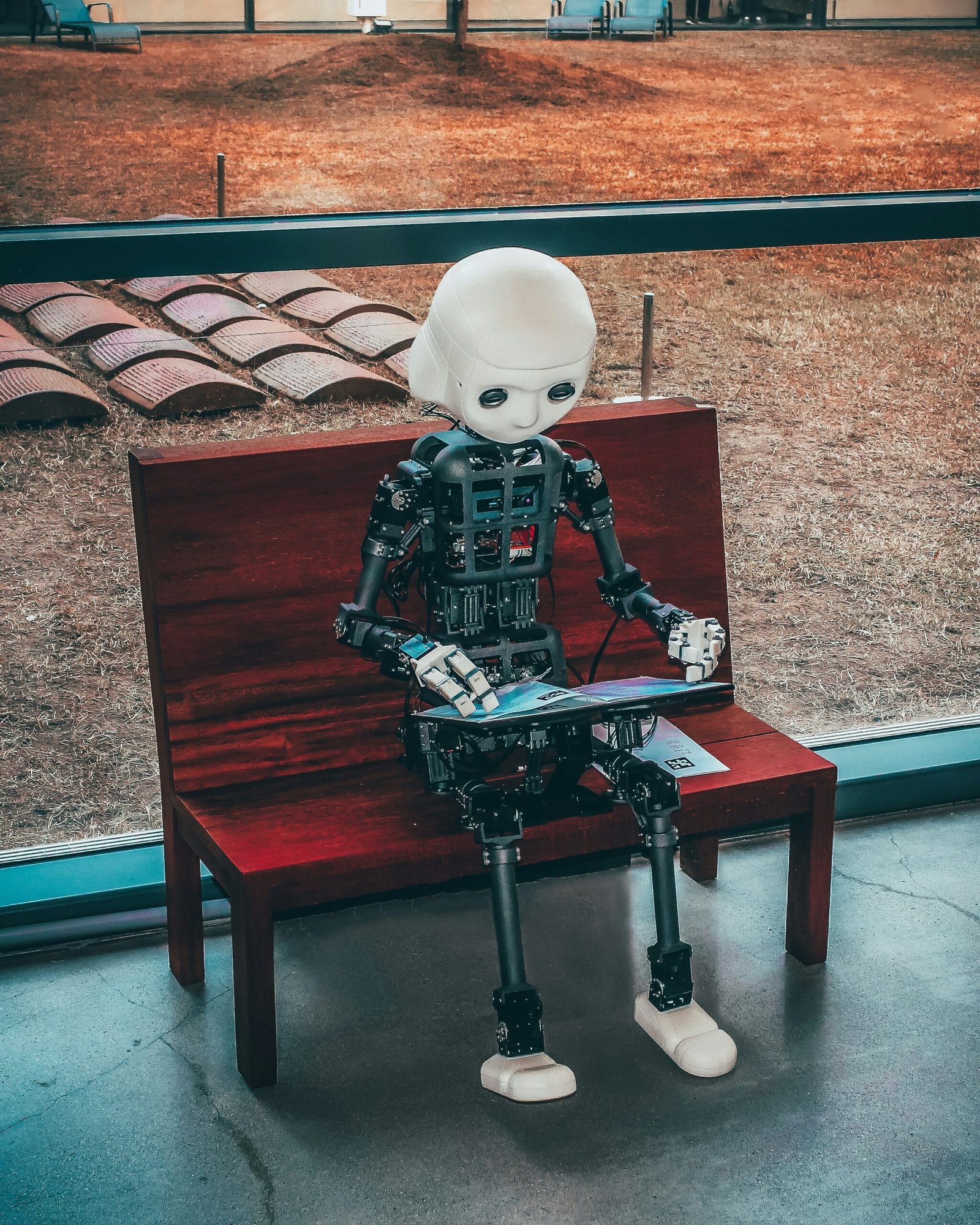This website uses cookies so that we can provide you with the best user experience possible. Cookie information is stored in your browser and performs functions such as recognising you when you return to our website and helping our team to understand which sections of the website you find most interesting and useful.

New Discoveries Made with Artificial Intelligence
Artificial Intelligence (AI) has revolutionized the way we live and work. From self-driving cars to virtual assistants, AI has become an integral part of our daily lives. But its impact goes beyond just convenience and efficiency. In recent years, AI has been used to make groundbreaking discoveries in various fields. In this blog post, we will explore some of the most exciting new discoveries made with artificial intelligence.
One of the areas where AI has made significant contributions is healthcare. With the help of AI algorithms, researchers have been able to analyze vast amounts of medical data and identify patterns that were previously unnoticed. For example, AI has been used to detect early signs of diseases like cancer and Alzheimer’s, allowing for early intervention and potentially life-saving treatments.
Another field where AI has made significant strides is in astronomy. With the help of AI algorithms, astronomers have been able to analyze large volumes of data collected from telescopes and satellites. This has led to the discovery of new exoplanets, galaxies, and even the identification of gravitational waves. AI has also been used to predict the behavior of celestial objects, helping scientists understand the universe better.
AI has also been instrumental in making breakthroughs in the field of materials science. By using machine learning algorithms, researchers have been able to discover new materials with unique properties and applications. For example, AI has been used to design more efficient solar cells, stronger and lighter alloys, and even new drug compounds. These discoveries have the potential to revolutionize industries such as energy, transportation, and healthcare.
Furthermore, AI has been used to make significant contributions in the field of archaeology. By analyzing satellite imagery and using machine learning algorithms, researchers have been able to uncover hidden archaeological sites and map ancient civilizations. This has provided valuable insights into our history and helped preserve cultural heritage.
In conclusion, artificial intelligence has not only transformed our daily lives but has also opened up new possibilities for scientific discovery. From healthcare to astronomy, materials science to archaeology, AI has been instrumental in making groundbreaking discoveries. As AI continues to advance, we can expect even more exciting and impactful discoveries in the future.
Furthermore, AI has revolutionized the field of drug discovery. Traditional methods of developing new drugs are time-consuming and expensive. However, with the help of AI, scientists can now analyze vast amounts of data to identify potential drug candidates more efficiently.
AI algorithms can sift through millions of chemical compounds and predict their effectiveness in treating specific diseases. This not only speeds up the drug discovery process but also increases the chances of finding successful treatments.
In addition to drug discovery, AI has also played a crucial role in improving patient monitoring and care. AI-powered devices can continuously monitor vital signs, such as heart rate, blood pressure, and oxygen levels, in real-time. This enables healthcare professionals to detect any abnormalities or warning signs early on and intervene promptly.
Moreover, AI can analyze patient data to predict potential health risks or complications. By identifying patterns and trends in a patient’s medical history, AI algorithms can alert healthcare providers of potential issues before they escalate. This proactive approach to healthcare can save lives and prevent hospitalizations.
Another area where AI has made significant contributions is in the field of telemedicine. With the advancement of technology, patients can now consult with healthcare professionals remotely using video conferencing or mobile apps. AI-powered chatbots can assist in triaging patients, answering basic medical questions, and providing guidance for self-care.
Overall, the integration of AI in healthcare has the potential to transform the way we diagnose, treat, and manage diseases. From early detection to personalized treatment plans and remote patient monitoring, AI has the capability to enhance patient outcomes, improve efficiency, and reduce healthcare costs.
Furthermore, artificial intelligence has revolutionized the way astronomers study the cosmos. One of the significant challenges in astronomy is the identification and classification of celestial objects. With the immense amount of data collected by telescopes and satellites, it becomes a daunting task for astronomers to analyze and interpret this data manually.
However, with the aid of AI algorithms, astronomers can now automate this process and extract valuable insights from the vast dataset. By training AI models on known celestial objects, such as stars and galaxies, scientists can develop algorithms that can accurately identify and classify these objects in new observations.
These AI algorithms can analyze the characteristics and patterns of celestial objects, such as their brightness, color, and shape, to determine their nature and properties. For example, AI can help identify different types of stars, such as red dwarfs, white dwarfs, or giant stars, based on their spectral signatures and luminosity.
Moreover, AI has also played a crucial role in the discovery of exoplanets, which are planets orbiting stars outside our solar system. Detecting exoplanets is a challenging task as they are faint and often obscured by the brightness of their host stars. However, AI algorithms have proven to be instrumental in identifying these elusive worlds.
By analyzing the light emitted by stars over time, AI algorithms can detect subtle changes or periodic dips in brightness, indicating the presence of an exoplanet crossing in front of its host star. This method, known as the transit method, has been used to discover thousands of exoplanets in recent years.
Furthermore, AI algorithms can analyze the data from multiple telescopes simultaneously, allowing astronomers to detect exoplanets more efficiently. By combining data from different observatories, AI can help confirm the existence of exoplanets and refine their characteristics, such as their size, mass, and orbital parameters.
Overall, the integration of artificial intelligence into astronomy has revolutionized the field, enabling astronomers to analyze vast amounts of data, identify celestial objects, and discover new exoplanets more efficiently. With further advancements in AI technology, we can expect even more groundbreaking discoveries and a deeper understanding of the universe.
In addition to monitoring and protecting ecosystems, AI is also being used to address other environmental challenges. One such challenge is the issue of climate change. AI algorithms are being utilized to analyze climate data and make predictions about future climate patterns. By analyzing historical data and current trends, AI can help scientists understand the impact of human activities on the environment and develop strategies to mitigate climate change.
Furthermore, AI is being used to optimize energy consumption and reduce waste. Smart grids powered by AI algorithms can analyze energy usage patterns and make real-time adjustments to optimize energy distribution. This not only helps reduce energy waste but also enables the integration of renewable energy sources into the grid, making our energy systems more sustainable.
AI is also revolutionizing waste management practices. By analyzing data on waste generation and disposal, AI algorithms can identify patterns and trends to optimize waste collection routes and schedules. This not only reduces costs but also minimizes the environmental impact of waste management processes.
Moreover, AI is being employed in water resource management. By analyzing data from sensors and satellite imagery, AI algorithms can monitor water quality and detect pollution incidents. This enables authorities to take immediate action to mitigate the impact on aquatic ecosystems and ensure the availability of clean water for human consumption.
Overall, the integration of AI in environmental conservation efforts has the potential to revolutionize how we understand and protect our planet. By harnessing the power of AI, we can make more informed decisions, develop sustainable practices, and ensure a better future for both humans and the natural world.
RELATED POSTS
View all



